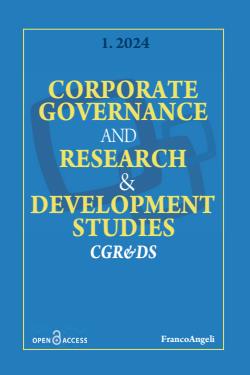Fascicolo 2/2022
Editoriale
Articoli
- Carmen Gallucci, Riccardo Tipaldi, Rosalia Santulli, Coming back to life: How business families revitalize "dead money" through family foundations
- Giulia Nevi, Luigi Monsurrò, Luca Dezi, Gian Luca Gregori, Longevity Family Firm and Innovation: A matter of communication?
- Mara Cerquetti, Marta Maria Montella, Domenico Sardanelli, Corporate museums as heritage vehicles: A comparative analysis between family and non-family businesses
- Federico Alvino, Filippo Maria Pisani, Sabrina Pisano, Corporate Governance and generational succession in family firms: The M.A.P.E.I. S.p.A. case study
- Stefano de Nichilo, Audit Implosion in European Affairs: How to Govern the Dimension and Development of the European Paying Agencies? The Argea Case: A Qualitative Research of Audit Loops and Restatement
- Maria Coscia, Board gender diversity and family firms’ corporate environmental responsibility: does "critical mass" matter?
- Sergio Barile, Antonio La Sala, Rosario Bianco, Management between crises and emergencies. Toward an "absential" approach
